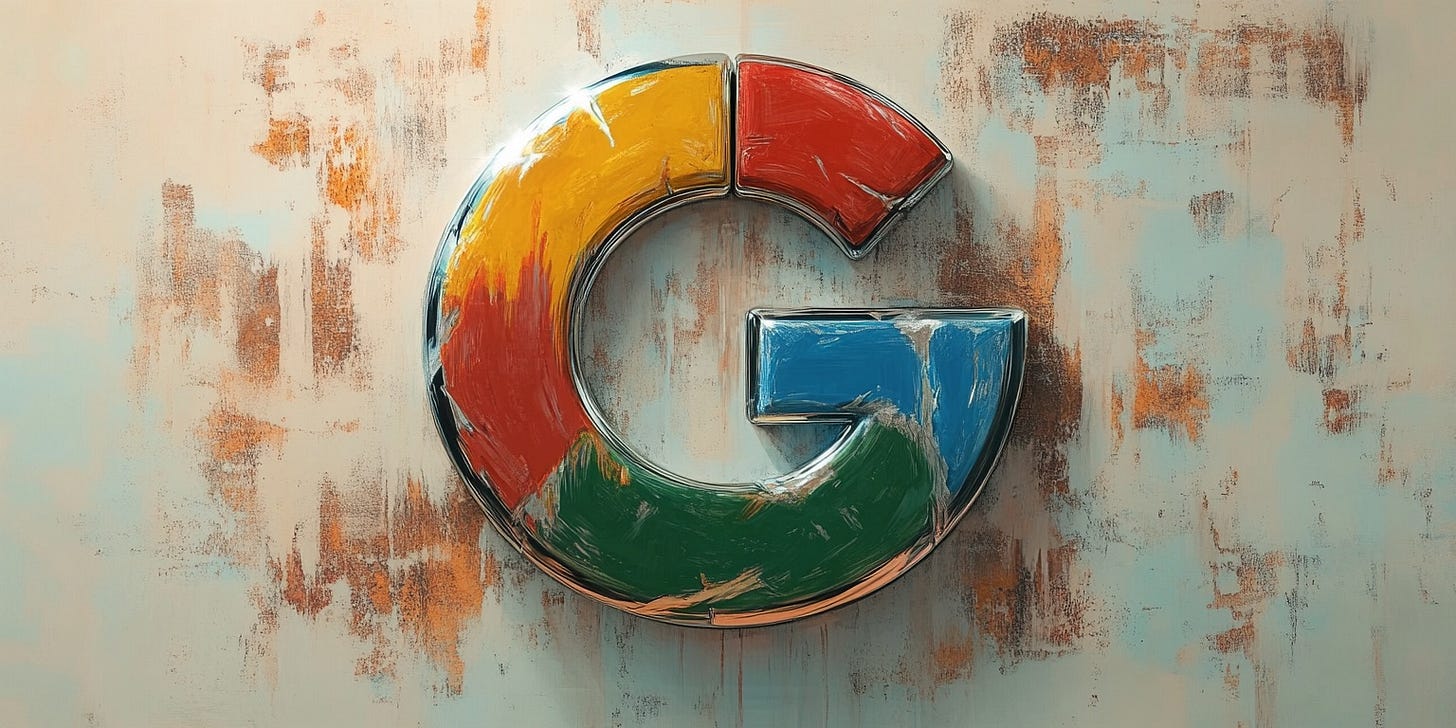AI Roundup 094: Pixtral et Le Chat
November 22, 2024.
Pixtral et Le Chat
Mistral AI launched Pixtral Large, a new multimodal AI model, and released several upgrades to Le Chat, its flagship chatbot.
Why it matters:
The new 124B-parameter Pixtral Large model demonstrates impressive capabilities in multimodal tasks while using fewer parameters than competitors like Meta's Llama 3.1.
And Le Chat now matches ChatGPT (at least on paper) with web search, image generation, and an interactive canvas - all offered for free during beta.
Ultimately, France has become Europe's AI powerhouse, with Mistral leading the way (but others close behind) as European companies begin to build alternatives to US-based AI providers.
Elsewhere in frontier models:
Chinese AI company DeepSeek unveiled DeepSeek-R1-Lite-Preview, a "reasoning" AI model claimed to be competitive with OpenAI's o1, with plans to open source it.
The Allen Institute for AI and the University of Washington built OpenScholar, an LLM for scientific research that reportedly outperforms GPT-4o on accuracy.
Google Quantum AI and DeepMind researchers debuted AlphaQubit, an ML decoder that can identify and correct quantum computing errors.
And Niantic is using data from Pokémon Go players to create a large geospatial model that can navigate the physical world and potentially power robots.
Putting the AI in antitrust
As the Department of Justice's antitrust case seeks to force Google to divest from Chrome, its proposal would also require Google to unwind its $2 billion partnership with Anthropic.
The big picture:
The Justice Department's proposal would prevent Google from acquiring, investing in, or collaborating with companies that control search-related technologies, including AI products.
Google argues that this would "chill" its investment in AI. Still, the FTC appears more concerned with preventing the consolidation of AI investment among existing tech giants, given the scrutiny of both Google and Amazon's Anthropic deals.
While other antitrust regulators (such as the UK's CMA) are fine with the Google/Anthropic partnership, the company may be banking on a friendlier Trump Administration - the President-elect has signaled skepticism about breaking up Google.
Elsewhere in AI geopolitics:
A bipartisan US congressional commission has proposed a Manhattan Project-style initiative to fund the development of AGI systems.
The US Department of Homeland Security has issued guidance on adopting AI in critical infrastructure, identifying key risks, including AI-driven attacks and design flaws.
Policy analysts suspect a potential Trump administration would dismantle or reshape the US AI Safety Institute, which would present challenges for AI regulation.
And X has sued to block California's AB 2655, a law aimed at curbing AI-generated deceptive election content on social media, claiming it impinges on free speech.
Elsewhere in the FAANG free-for-all:
Apple is testing a more conversational version of Siri, dubbed "LLM Siri," with plans to release it in spring 2026.
Meta unveils new Messenger features, including audio and video voicemail, AI backgrounds for video calls, and hands-free calling and messaging via Siri.
Google rolls out a "memory" feature for Gemini Advanced subscribers that remembers a user's interests and preferences.
And Microsoft debuted an AI interpreter in Teams that can simulate speaker voices and offer near-real-time voice interpretation in nine languages.
The doctor is in(accurate)
In a new study, GPT-4 outperformed doctors in diagnosing complex medical cases. The AI scored an average of 90%, beating both doctors alone (74%) and doctors who used AI (76%).
Between the lines:
The study used actual medical cases from the 1990s that were intentionally kept unpublished - meaning ChatGPT couldn't have been trained on them.
Interestingly, doctors who used ChatGPT did only marginally better than doctors who didn't - in part because they weren't persuaded when the AI proposed a different diagnosis.
But part of the problem is also user education. Most doctors treated the AI like a search engine, and only a fraction realized you could paste in the entire case text and get back comprehensive answers.
Elsewhere in AI anxiety:
Hawaii's The Garden Island newspaper stopped using AI-generated newscasters on social media platforms after two months, likely due to negative public response.
Coca-Cola released an AI-generated Christmas ad and in turn generated predictable backlash from creatives.
Sir David Attenborough is "profoundly disturbed" by an AI clone of his voice.
And 404 Media delves into the booming "AI pimping" industry.
Things happen
Foundation model pretraining scaling is intact, says Jensen Huang. Business spending on generative AI hit $13.8B in 2024. An AI slowdown might be everyone else's opportunity. AI-powered Buzzfeed ads suggest buying hat of man who died by suicide. Wall Street prepares to cash in on AI hysteria. Microsoft says it has the largest enterprise AI agent ecosystem. AI pioneer Yoshua Bengio calls for more urgent AI model regulation. One year after Altman's ouster, OpenAI remains dominant. Microsoft signs a deal to use HarperCollins nonfiction titles for AI training. AI breakthroughs are transforming robotics. Meta forms a new product group to build AI tools for businesses. A look at AI in Winter. Amazon held talks on handling tasks on the LLM-powered Alexa with various companies. Physical Intelligence is trying to give robots a humanlike understanding of the physical world. Bluesky won't train AI on your posts. OpenAI considered making a browser. How Zuckerberg made Llama a cornerstone of AI ambitions at Meta. OpenAI releases a teacher's guide to ChatGPT. A profile of Thrive Capital, whose biggest portfolio companies include OpenAI and Stripe. Emails from Musk's lawsuit against OpenAI reveal internal concerns. How Satya Nadella put Microsoft back on top. Chinese tech giants expand AI teams in Silicon Valley.








